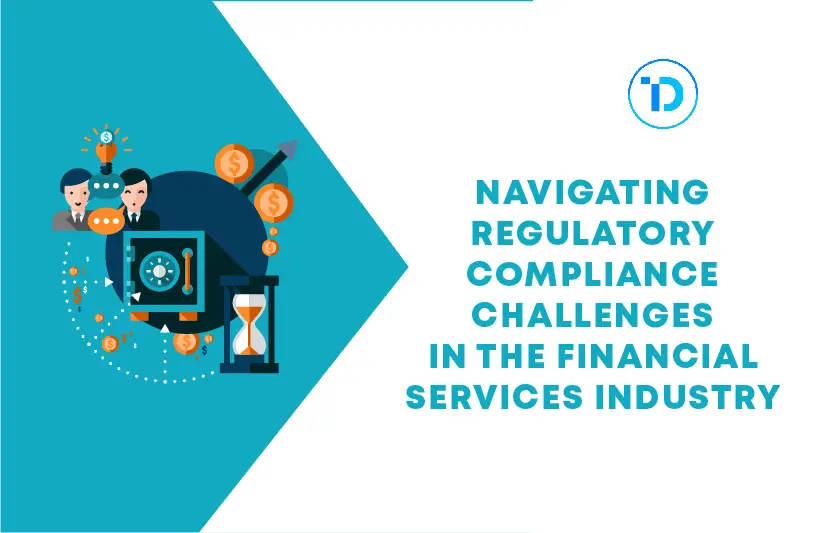The financial services industry operates within a complex regulatory framework that requires strict adherence to various laws, regulations, and standards. From anti-money laundering (AML) regulations to data protection laws, financial institutions face a multitude of compliance challenges. Many financial services executives believe that regulatory compliance is becoming more complex, highlighting the growing importance of effective compliance management strategies. In this dynamic regulatory landscape, financial institutions must navigate compliance challenges efficiently to mitigate risks, protect customer data, and maintain trust with regulators and stakeholders.
Challenges Faced by Financial Institutions
Financial institutions face several challenges when it comes to regulatory compliance. These challenges include keeping up with constantly evolving regulations, managing compliance across multiple jurisdictions, ensuring data security and privacy, and handling regulatory audits and inspections. Failure to comply with regulations can result in hefty fines, reputational damage, and legal repercussions. Therefore, financial institutions must implement robust compliance strategies and technologies to mitigate these risks effectively.
Importance of Data Security and Privacy
Data security and privacy are central to regulatory compliance in the financial services industry. Financial institutions handle sensitive customer information, including personal and financial data, which must be protected from unauthorized access, breaches, and misuse. Compliance with regulations such as the General Data Protection Regulation (GDPR) and the Gramm-Leach-Bliley Act (GLBA) requires implementing stringent data security measures, conducting regular audits and assessments, and ensuring data encryption and access controls are in place.
Best Practices for Regulatory Compliance
To effectively navigate regulatory compliance challenges, financial institutions should adopt best practices such as:
- Conducting regular compliance audits and assessments to identify gaps and areas for improvement.
- Implementing robust data security measures, including encryption, access controls, and data masking.
- Providing ongoing training and education for employees on compliance policies, procedures, and regulations.
- Utilizing technology solutions, such as compliance management platforms and service automation tools, to streamline processes and ensure compliance.
- Maintaining transparent and open communication with regulators, stakeholders, and customers regarding compliance initiatives and updates.
Role of Technology in Compliance Management
Technology plays a crucial role in managing regulatory compliance efficiently. Automated compliance management systems, including automation tools, help streamline processes, ensure accuracy, and reduce manual errors. These tools can automate compliance monitoring, risk assessments, regulatory reporting, and audit trails, enabling financial institutions to stay compliant while minimizing operational burdens and costs.
According to a study by PwC, 88% of financial services executives believe that technology will significantly impact compliance over the next five years, with automation playing a key role in streamlining processes and reducing compliance costs.
Compliance officers play a crucial role in ensuring regulatory adherence within financial institutions. Equipping compliance officers with technology solutions such as compliance management platforms and automated reporting tools empowers them to efficiently manage compliance tasks, monitor regulatory changes, and track compliance metrics. This technology-enabled approach enables compliance officers to focus on strategic initiatives, risk mitigation, and proactive compliance measures, contributing to a culture of compliance within the organization.
Implementing Service Automation for Compliance
Customer service automation is not just about improving efficiency and response times; it also plays a role in regulatory compliance. By automating customer interactions, financial institutions can ensure consistent and compliant communication with customers regarding regulatory changes, policy updates, and account information. Automated systems can also handle compliance-related inquiries, such as KYC verification and AML checks, in a timely and accurate manner, reducing compliance risks and enhancing customer satisfaction.
Regulatory reporting is a critical aspect of compliance management, requiring accurate and timely submission of reports to regulatory authorities. Automation tools can streamline the regulatory reporting process by automating data collection, validation, and reporting tasks. By automating these manual processes, financial institutions can reduce reporting errors, ensure regulatory compliance, and free up resources for more strategic initiatives. Automation also enables faster response times to regulatory inquiries and requests for information.
Advanced analytics is revolutionizing compliance monitoring in the financial services industry. By harnessing the power of data analytics, financial institutions can gain deep insights into their compliance status, detect potential risks and anomalies, and proactively address issues before they escalate. These analytics-driven approaches enable real-time monitoring, predictive analytics for risk assessment, and continuous improvement in compliance processes.
Addressing Cross-Border Compliance Challenges
Financial institutions operating across multiple jurisdictions face unique challenges related to cross-border compliance. Each country may have its own set of regulations, reporting requirements, and compliance standards, making it complex to ensure consistency and adherence to all applicable laws. Leveraging automation tools with multilingual capabilities and region-specific compliance modules can help financial institutions navigate these cross-border challenges effectively. Automation ensures that compliance processes are standardized yet flexible enough to accommodate local regulatory nuances.
Staying Ahead of Regulatory Trends and Innovations
The regulatory landscape in the financial services industry is constantly evolving, with new regulations, guidelines, and compliance expectations emerging regularly. Financial institutions must stay informed about regulatory trends, industry best practices, and technological innovations to stay ahead of compliance challenges. Implementing automation tools that offer built-in compliance updates, regulatory intelligence, and adaptive compliance frameworks can help institutions proactively adapt to regulatory changes and maintain compliance readiness.
In conclusion, navigating regulatory compliance challenges in the financial services industry requires a proactive and technology-driven approach. Financial institutions must leverage advanced analytics, automation tools, and compliance management platforms to streamline processes, ensure accuracy, and stay ahead of regulatory trends. As the regulatory landscape continues to evolve, institutions that prioritize compliance excellence and embrace technological innovations will not only mitigate risks but also unlock opportunities for sustainable growth and long-term success in a highly regulated environment.
